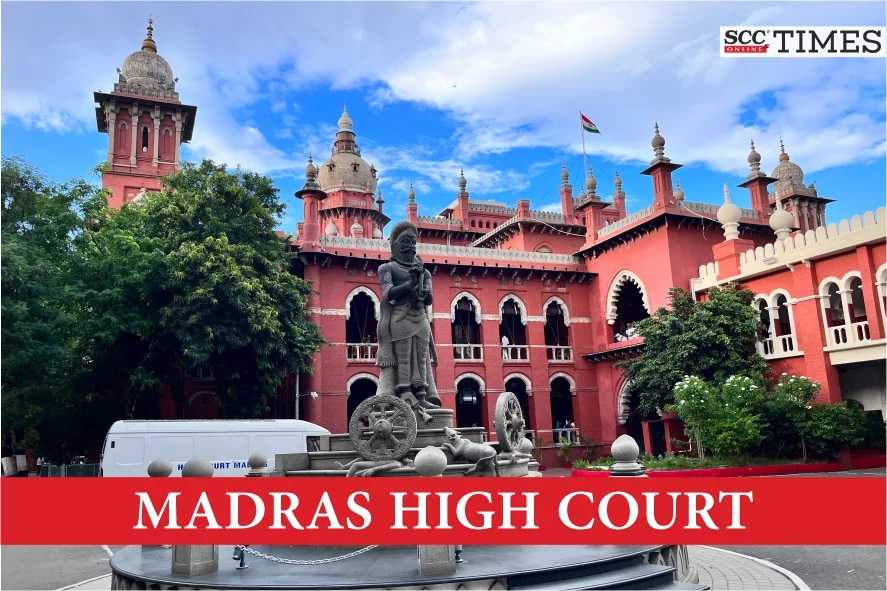Madras High Court: In an appeal filed under Section 173 of Motor Vehicles Act, 1988, to set aside the decree and judgment passed by the Motor Accidents Claims Tribunal (‘Tribunal’), wherein the Tribunal attributed 50% contributory negligence against the claimant/appellant on the ground that he should have maintained safe distance from the lorry and that apart, he also smelled alcohol in his breath, N. Anand Venkatesh, J. has enhanced the compensation awarded by the Tribunal from Rs.1,53,952/- to Rs.3,53,904/- and directed United India Insurance Company Limited to pay this enhanced compensation with interest at 7.5% per annum.
Background:
The claimant was riding his two-wheeler and the lorry which was going in front of the two-wheeler suddenly stopped and as a result, the two-wheeler driven by the claimant hit the rear side of the lorry. Due to this accident, the claimant sustained multiple injuries. An FIR was registered against the driver of the lorry. It is under these circumstances; the claimant filed the claim petition seeking for payment of compensation. The Tribunal concluded that the accident took place only due to rash and negligent driving on the part of the driver of the lorry. Further, the Tribunal attributed 50% contributory negligence against the claimant on the ground that he should have maintained a safe distance from the lorry and that apart, he also smelled alcohol in his breath.
The Tribunal thereafter proceeded to assess the total compensation at Rs.3,07,90/-. Out of this, 50% was deducted and the balance 50% was directed to be paid by the Insurance Company along with interest at the rate of 7.5% p.a.
The claimant was not satisfied with the quantum of compensation awarded and 50% contributory negligence attributed against him by the Tribunal. Thus, he filed this appeal seeking enhancement of compensation.
The Court said that consuming alcohol per say is not an offence. In fact, the State is the only provider of alcohol to the citizens through the Indian —Made Foreign Liquor shops run by them. Thus, it is the sole responsibility of the State to also take care of the consequences arising out of consumption of liquor. It is important to see if alcohol consumption has influenced the driving capacity of the vehicle’s rider.
After taking note of Section 185 of the Motor Vehicles Act, 1988, the Court said that it indicates the level of alcohol in the blood which will be considered an offence. It is provided that the alcohol in the blood cannot exceed 30 mg per 100 ml of blood. Only if the level crosses this threshold fixed under the provision, is a criminal offence said to have been committed. Therefore, the Court held that the same threshold can be applied even to make a legal presumption that a person will not be within control while riding the vehicle under the influence of alcohol.
Concerning that the claimant smelled alcohol in his breath, the Court said that this finding by itself is not sufficient to attribute contributory negligence against the claimant.
Further, the Court remarked that it is too difficult to maintain safe distance from the vehicle going in front, considering the nature of roads that are available in the towns, suburbs and cities. Therefore, even though it is advisable to maintain a safe distance, the fact that the vehicle has been hit on the rear side due to the sudden break applied by the vehicle in front, by itself will not result in attributing contributory negligence.
The Court noted that the Tribunal did not grant any compensation for extra nourishment charges and hence, the Court fixed a sum of Rs.15,000/- under this head. The Court also increased the compensation under the head of attender charges from 4,500 to Rs.15,000/-.
While concluding, the Court said that in many accident cases the Doctor just smells alcohol in the injured’s breath. However, effort must be made to find out the alcohol percentage in the blood. This determination is very important since this determination will show as to whether the person who had consumed alcohol was within his limits or exceeded the limits. Such scientific data will also enable the Court to come to correct conclusions in cases of this nature.
Thus, the Court directed the Principal Secretary, Ministry of Health and Family Welfare, Government of Tamil Nadu, to issue a circular to all the hospitals including private hospitals to the effect that in all cases where the injured or the deceased is brought to the hospital and smells alcohol, the level of alcohol in the blood has be assessed and the same must be noted in the relevant records. Further, the Court directed that this practice be made mandatory, since there is an increase in the number of cases where the rider of the vehicle drives the vehicle after consuming alcohol.
[Ramesh v. Selvakumar, 2024 SCC OnLine Mad 809, decided on 16-04-2024]
Advocates who appeared in this case :
For Appellant: Advocate Sithi Fathima Samt
For Respondents: Advocate I. Malar






